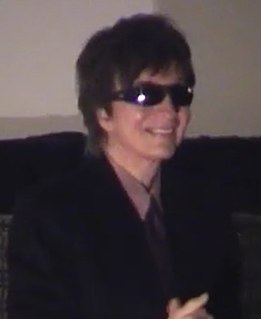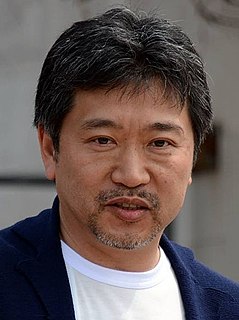A Quote by Costa-Gavras
[Akiro] Kurosawa, no doubt, was a big influence. Movies sometimes more than directors have influenced me: The Grapes of Wrath, by John Ford, was an extraordinary discovery. Sergei Eisenstein, of course. Later on, [Ingmar] Bergman.
Related Quotes
I don't like my movies. I prefer John Ford's movies. I've made some movies that are interesting, or that have some point, or are more or less beautiful. But I've never made anything big to me, from my point of view. "Big" like John Ford or someone of that kind. I say John Ford because he is my favorite director.
I would not have made any of my films or written scripts such as Taxi Driver had it not been for Ingmar Bergman, What he has left is a legacy greater than any other director.... I think the extraordinary thing that Bergman will be remembered for, other than his body of work, was that he probably did more than anyone to make cinema a medium of personal and introspective value.
Directors who have inspired me include Billy Wilder, Federico Fellini, lngmar Bergman, John Ford, Orson Welles, Werner Herzog, Stanley Kubrick, Alfred Hitchcock, Francis Ford Coppola and Ernst Lubitsch. In art school, I studied painters like Edward Hopper, who used urban motifs, Franz Kafka is my favorite novelist. My approach to film stems from my art background, as I go beyond the story to the sub-conscious mood created by sound and images.
I watched a lot of silent directors who were absolutely great like John Ford and Fritz Lang, Tod Browning, and also some very modern directors like The Coen Brothers. The directors take the freedom within their own movies to be melodramatic or funny when they chose to be. They do whatever they want and they don't care about the genre.
In the neighborhood around Waseda, there were all these movie theaters, so every morning I left the house and watched movies instead of going to class. The experience of encountering films then is one of my greatest memories. Before that I'd never paid any attention to directors, but there I was taking a crash course in Ozu, Kurosawa, Naruse, Truffaut, Renoir, Fellini. Because I've always been naturally a more introspective person, I was more interested in becoming a screenwriter than a director.
Fellini was more in love with breasts than Russ Meyer, more wracked with guilt than Ingmar Bergman, more of a flamboyant showman than Busby Berkeley... Amarcord seems almost to flow from the camera, as anecdotes will flow from one who has told them often and knows they work. This was the last of his films made for no better reason than Fellini wanted to make it.




































